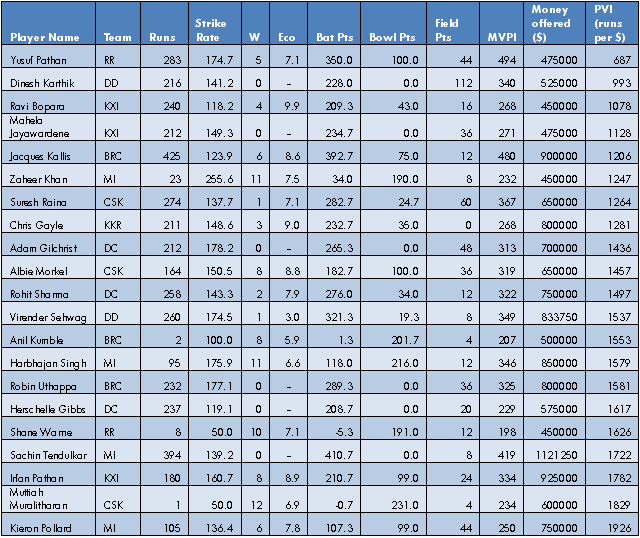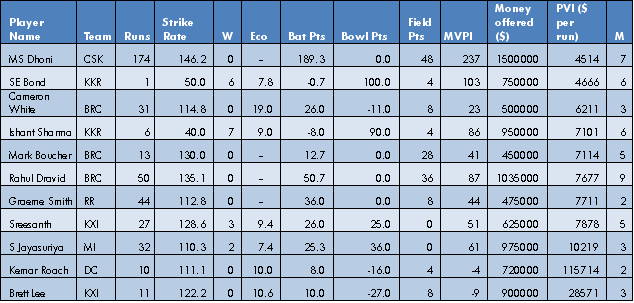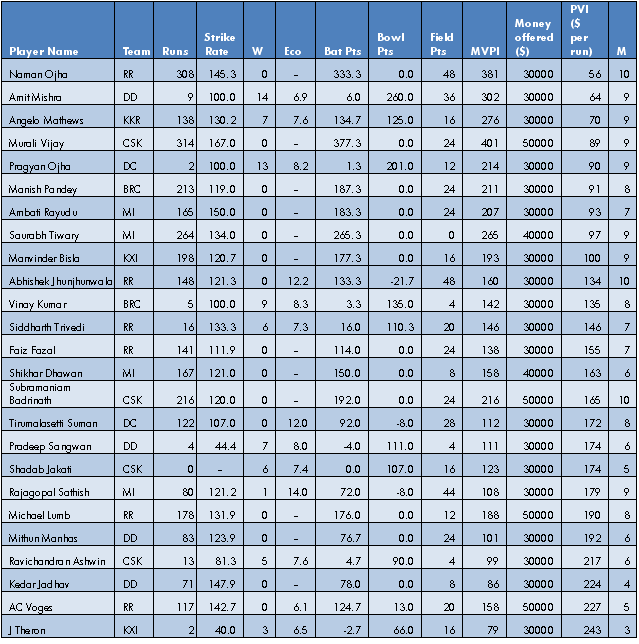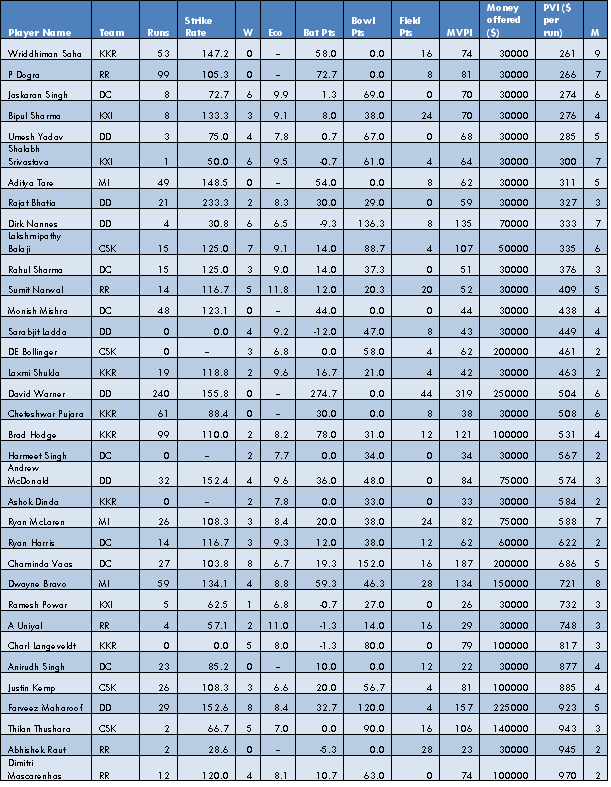 | « Back to article | Print this article |
An IPL player's Paisa Vasool Index is obtained by using the following formula: money paid to the player so far / MVPI of the player so far.
It's very straight-forward: divide the total number of US dollars paid so far by the number of 'runs' scored so far. This ratio tells you how much a player is paid (in US $) for every 'run' he has contributed.
We are putting 'runs' within quotes because the MVPI expresses a player's batting, bowling and fielding contributions in terms of a 'run equivalent'.
So if Doug Bollinger's PVI is currently 461, it means that the CSK franchise currently pays Bollinger $461 for every 'run equivalent' he contributes -- in Bollinger's case by taking wickets and bowling with low economy rates.
It's clear that franchise owners want players with low PVIs. A low PVI can happen if a player is bought cheap, or if he performs exceptionally well (i.e. has a very high MVPI).
What franchise owners really love is when an 'expensive' Tendulkar performs very well. A Tendulkar always provides phenomenal (brand) value outside the cricket field. If he also provides great value on the cricket field, it's a double dhamaka.
In our first table we list the expensive players (paid $450,000 or more) providing the best value (less than $2000 per run).

There are also a lot of 'expensive' players who have failed to provide value -- because of poor performances, lack of opportunity or insufficient appearances.
In many cases, these players haven't made it to the playing eleven (but they are still being paid!). In some cases (Dravid is a great example) they have had no opportunity to contribute in spite of being in the playing eleven.
Our second table lists the 'expensive' players who have been unable to provide sufficient on-field value (more than $4000 per run). Brendon McCullum (who has reached late, but is yet to play his first match) and J-P Duminy (who is the most expensive player not to leave the 'bench')

Our third table lists players who are paid very little (less than US$50,000), but offer phenomenal value (less than $250 per run). Most of these are Indian players who have been bought cheap outside the auction because they have still not worn national colours.

It is probable that some of our prices listed are wrong (too low), but these players are still great value for money. Franchise owners should pay them more -- and probably will in the next auction because, with two new franchises, and still the requirement to have seven Indian players in the playing eleven, good Indian players are in scarce supply.
Finally, our fourth table lists some more inexpensive IPL players who still contribute 'runs' at less than $1000 per run.
This table also includes some foreign players who are absolute steals (unless their prices have since been hiked), and other foreign players who do provide good value, but must fear that their price won't rise too much because IPL continues to have a surplus supply of foreign players.
These players, especially if they are past 30, are likely to become 'mercenaries' playing in every conceivable T20 event and hoping that their cumulative earnings over the year will add up to something reasonable.
All tables are based on details available in our database on the morning of 7 April 2010.
